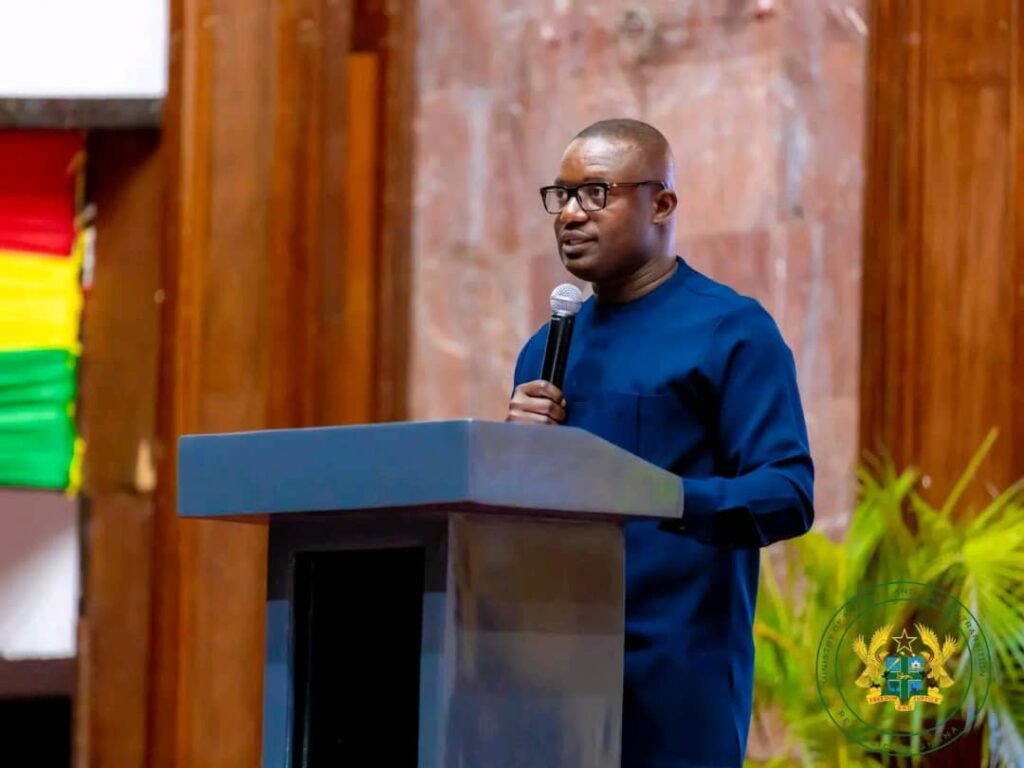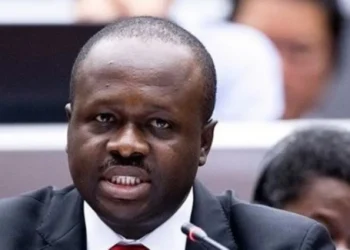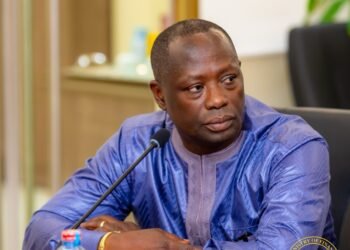Ghana’s power sector faces a deepening financial crisis that cannot be resolved by privatization alone, Energy Sector Specialist Dr. Nii Darko Asante has warned. Instead, he argued, the country must confront entrenched issues of structural transparency, accountability, and accurate data reporting if it is to avert a looming collapse.
Speaking at a High-Level Discussion on “Addressing Ghana’s Energy Sector Challenges for Economic Transformation,” Dr. Asante pointed to a persistent mismatch between the actual cost of electricity generation, transmission, and distribution, and the revenue collected from consumers as the root of the sector’s woes.
“We have debts. We sometimes call them legacy debts, but the reality is there’s a shortfall between the cost to generate and distribute electricity and the money collected from industrial and residential consumers.”
Energy Sector Specialist Dr. Nii Darko Asante
Dr. Asante explained that Independent Power Producers (IPPs) often operate with government-backed guarantees.
When distribution companies fail to meet their financial obligations, the state steps in to cover the difference—a burden that is eventually transferred to citizens through higher taxes or tariffs.
“Neither the president nor the minister is going to dig into his pocket to pay that balance. It will come from us, the citizens, one way or another.”
Energy Sector Specialist Dr. Nii Darko Asante
However, the most alarming issue, he stressed, is the absence of clear, reliable data on the size of the financial hole.

“Nobody really seems to know what the gap is. There are estimates, but no publicly defined figure that tells us whether we are short GH¢100 million or GH¢200 million monthly.”
Energy Sector Specialist Dr. Nii Darko Asante
This opacity, according to Dr. Asante, fuels speculation about the real source of the sector’s troubles. Is the shortfall primarily due to underpriced tariffs, excess generation capacity, or systemic inefficiencies within the value chain? “We don’t have answers because we don’t have the data to support any of the competing narratives,” he added.
Adding to the complexity is Ghana’s shifting position on generation capacity. In recent years, the country has been grappling with excess capacity, paying for power it didn’t consume under “take-or-pay” contracts.
However, Dr. Asante now warns that the pendulum could be swinging toward a power deficit, even as debate over the issue continues to rage in the media.
“How can we argue over whether there’s a power shortfall?
“GRIDCo knows how much power is on the grid, but instead of relying on that data, we argue in the media.”
Energy Sector Specialist Dr. Nii Darko Asante
He highlighted the politicisation of what he believes should be a strictly technical matter.
Renewed Calls for Privatisation

His comments come amid renewed calls for the privatization of the Electricity Company of Ghana (ECG), with some experts insisting that bringing in private players could resolve longstanding inefficiencies.
Yet Dr. Asante cautioned against viewing privatisation as a silver bullet, arguing that without addressing the underlying gaps in data integrity and accountability, any reform risks failure.
He said pointedly, “You can’t manage what you don’t measure,” emphasising the need for a comprehensive audit of the power sector’s financial flows and operational metrics.
Dr. Asante’s intervention adds to a growing chorus of voices urging a rethink of Ghana’s energy sector reforms. With ballooning debts, frequent tariff adjustments, and rising consumer frustration, the stakes have never been higher.
Recent data from the Ministry of Energy suggests the sector’s accumulated debt has surpassed GH¢80 billion, driven in large part by unpaid invoices to IPPs, distribution losses, and forex-related costs in power purchase agreements denominated in dollars.

The government has introduced measures aimed at stabilising the situation, including a World Bank-supported metering project and efforts to restructure legacy debts.
However, analysts like Dr. Asante warn that these interventions will be insufficient unless paired with transparent planning and an unflinching commitment to data-driven policymaking.
“Until we confront the accountability gap and ensure that procurement, generation planning, and revenue collection are transparent, we will continue pouring money into a black hole.”
Energy Sector Specialist Dr. Nii Darko Asante
As the debate over ECG’s future intensifies, Dr. Asante’s call for structural reform rooted in transparency and reliable data underscores the complexities of fixing Ghana’s power sector. The challenge now is whether policymakers will heed this advice or continue to pursue piecemeal solutions.
Read Also: Banking Sector Shakeup: Five Ghanaian Banks Under Intense BoG Scrutiny Over Capital Failures



















